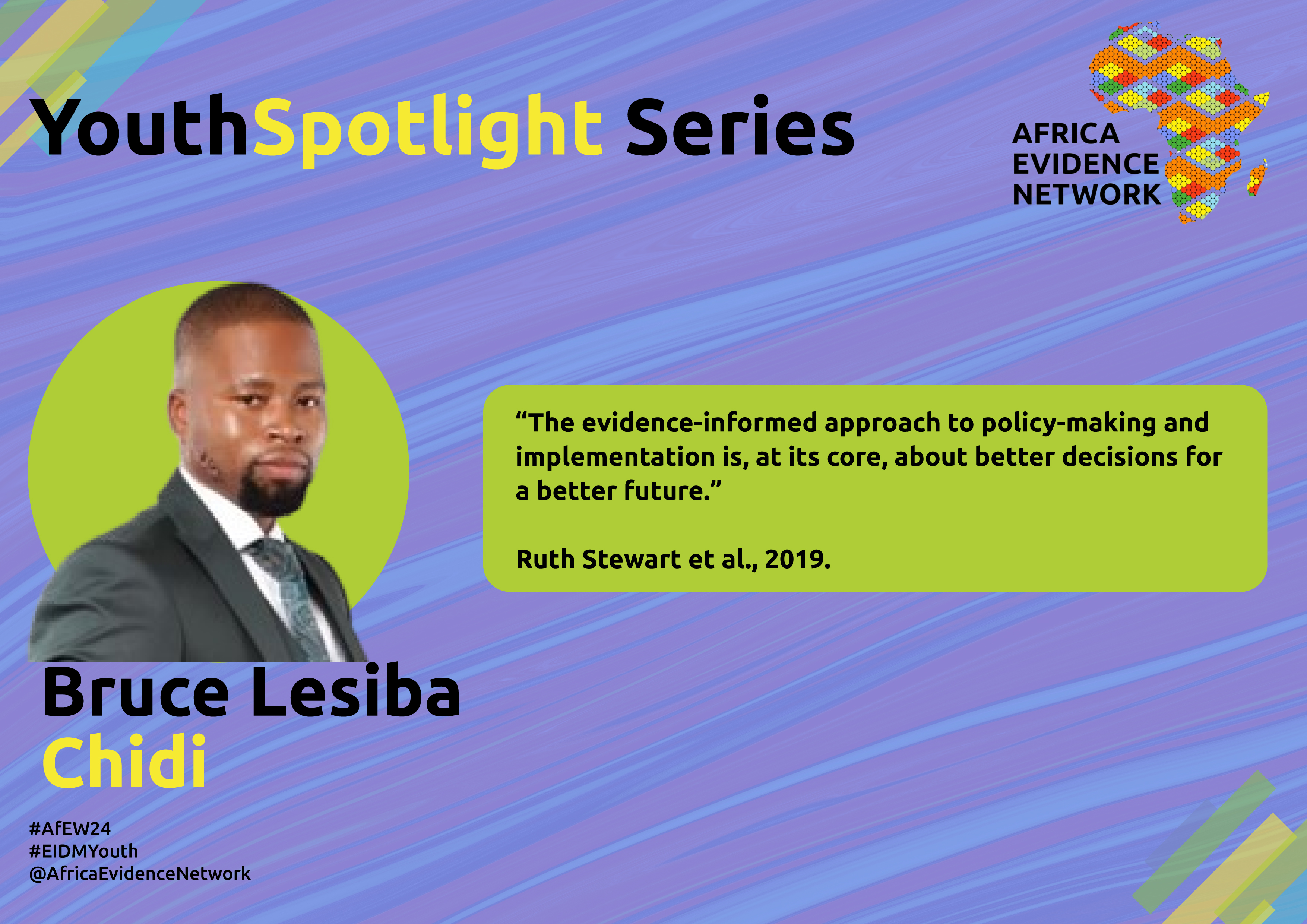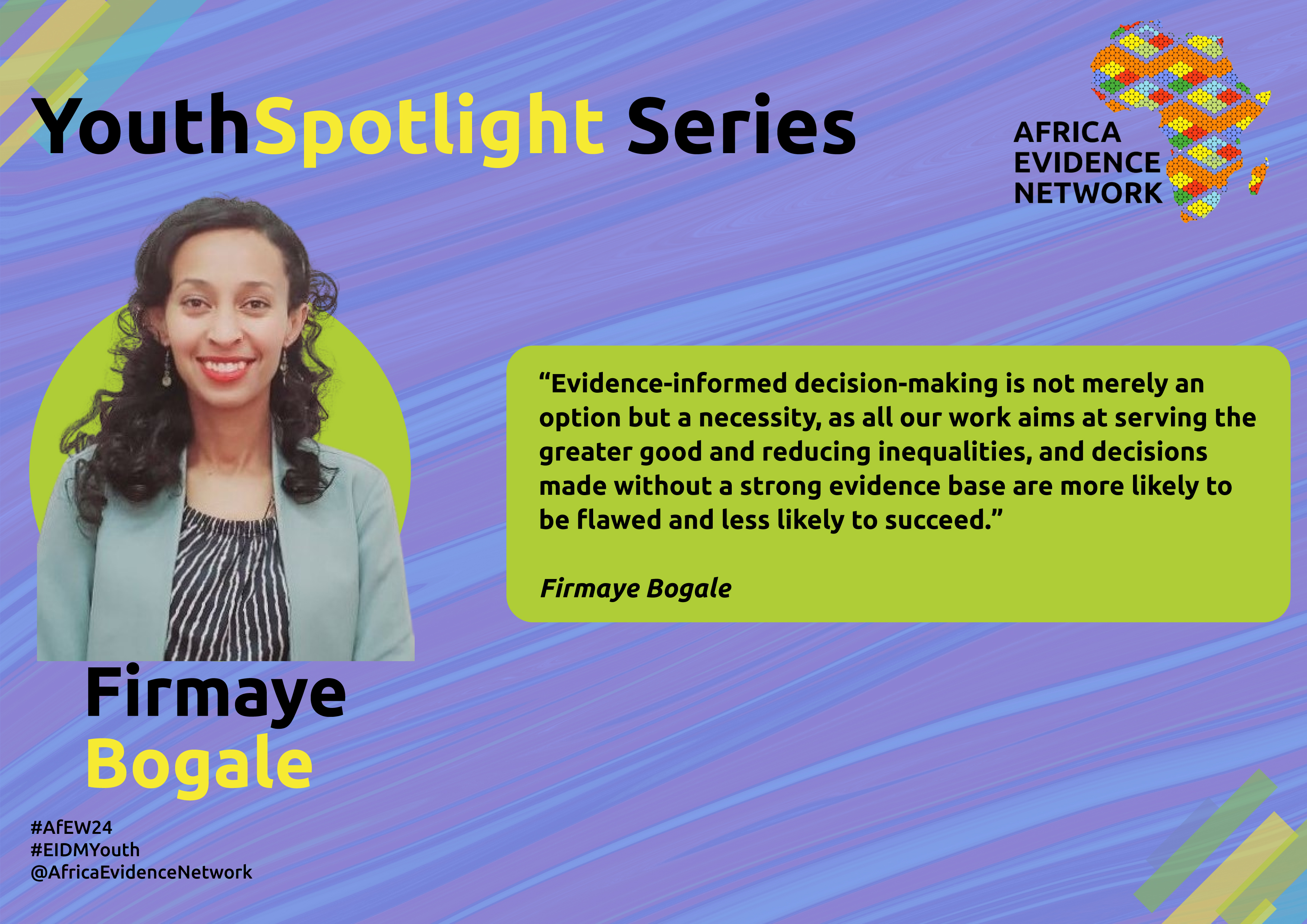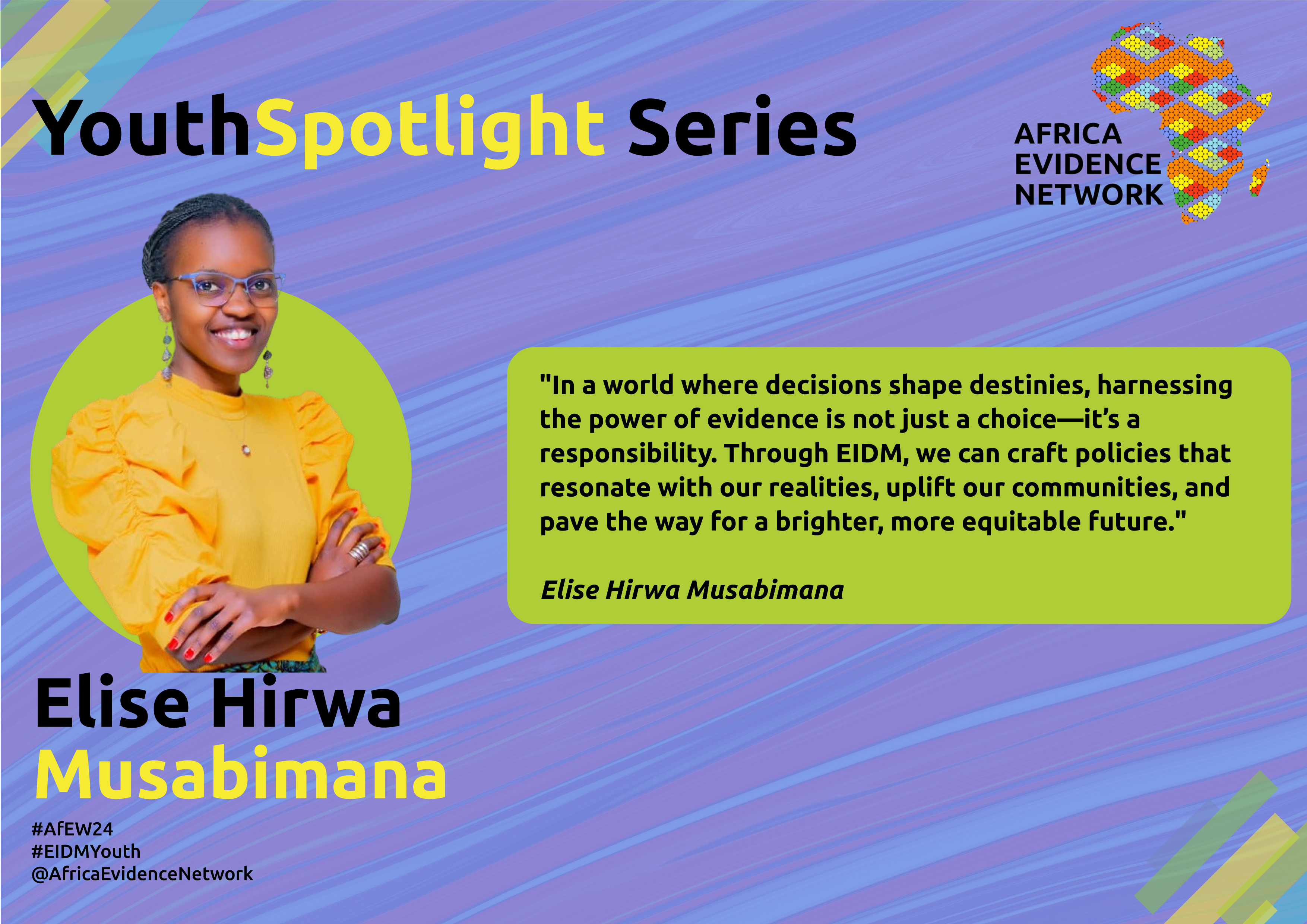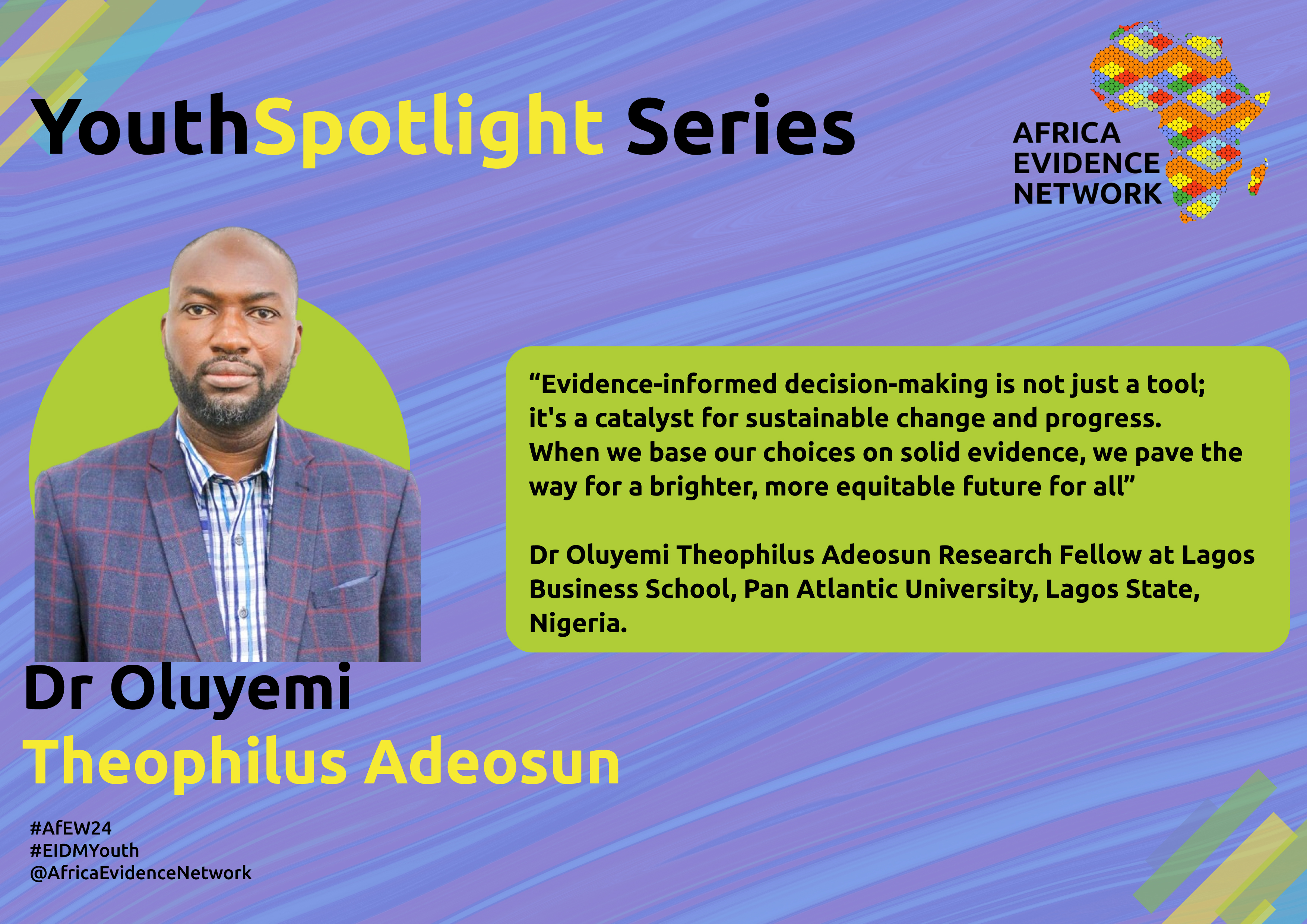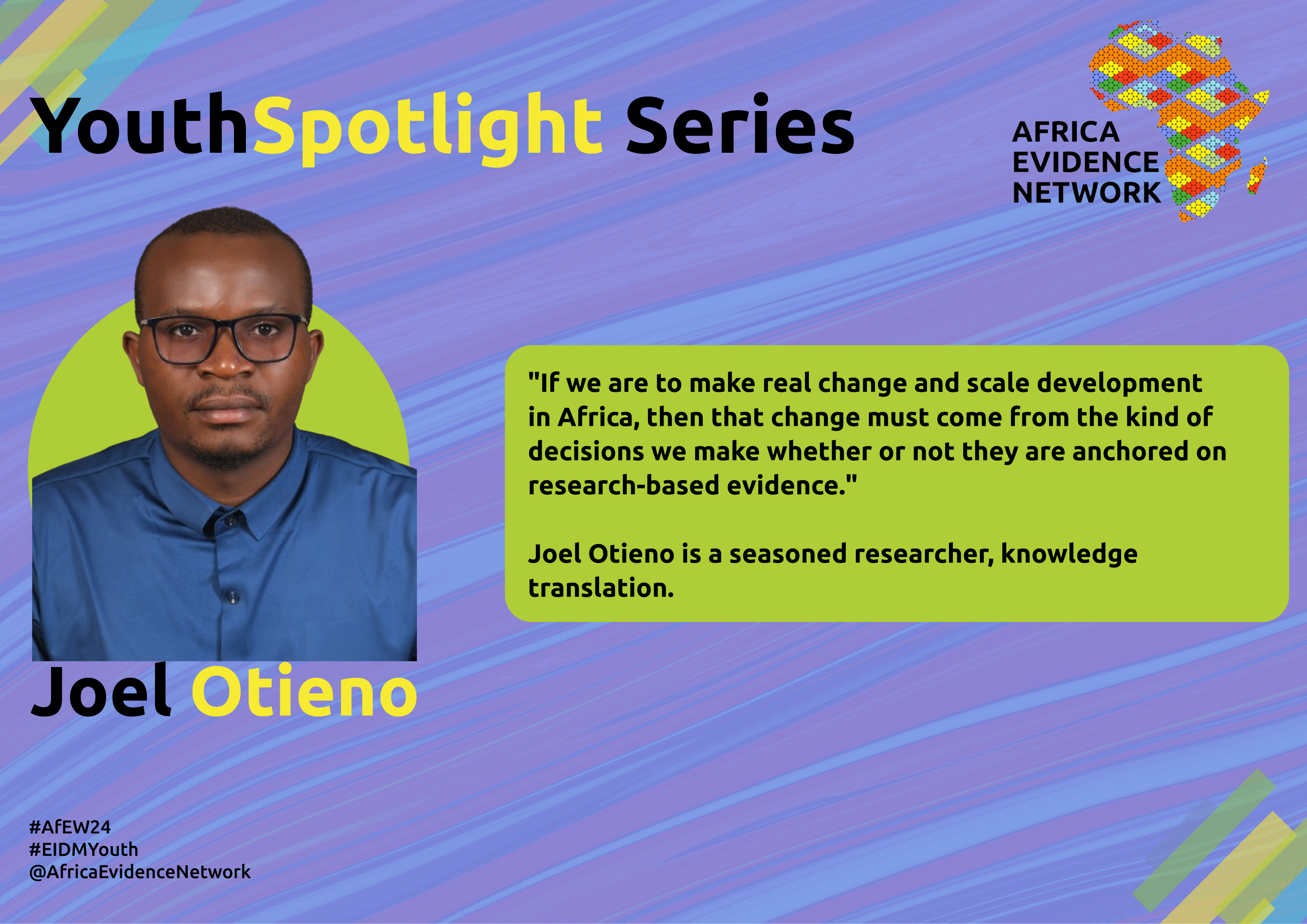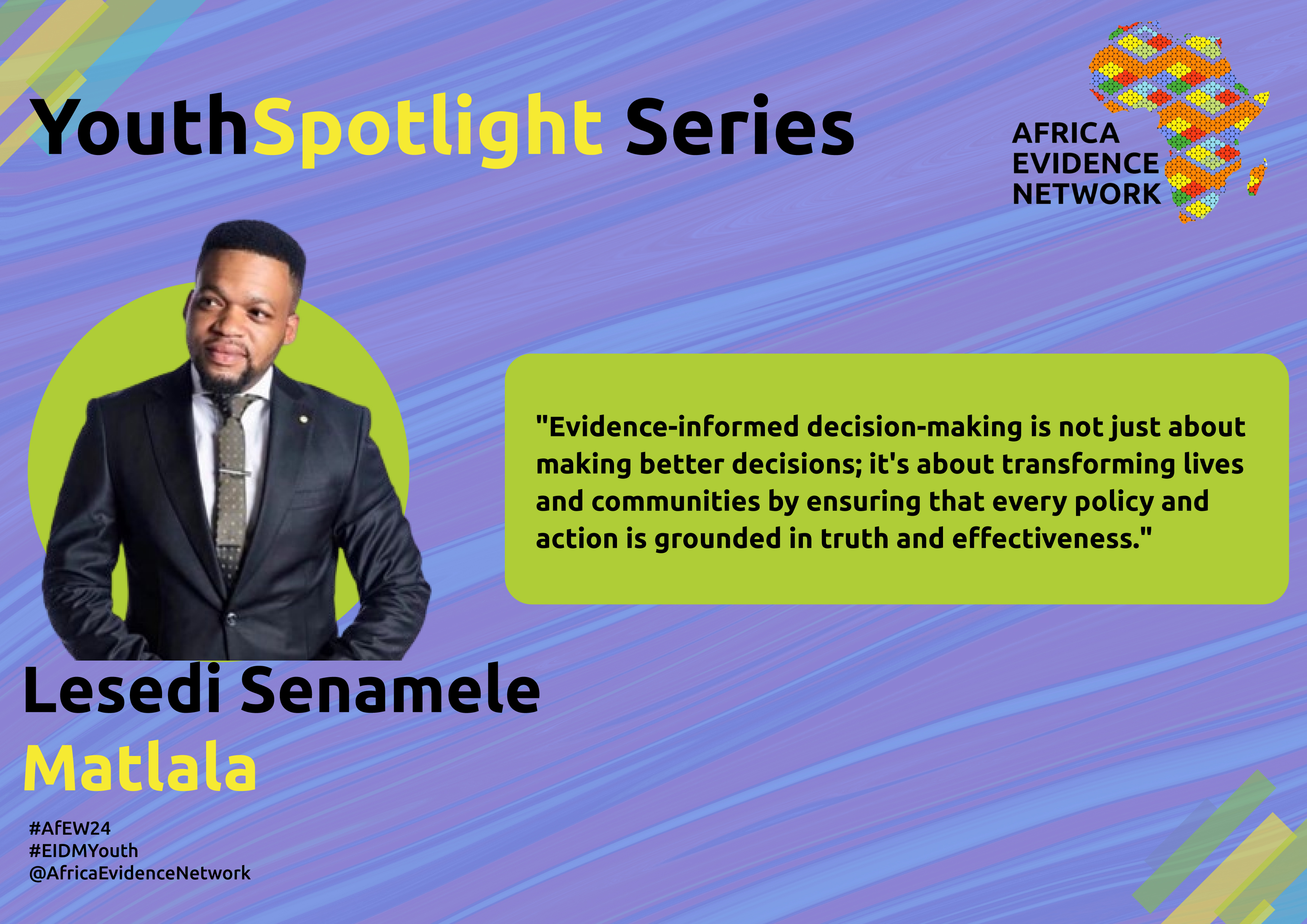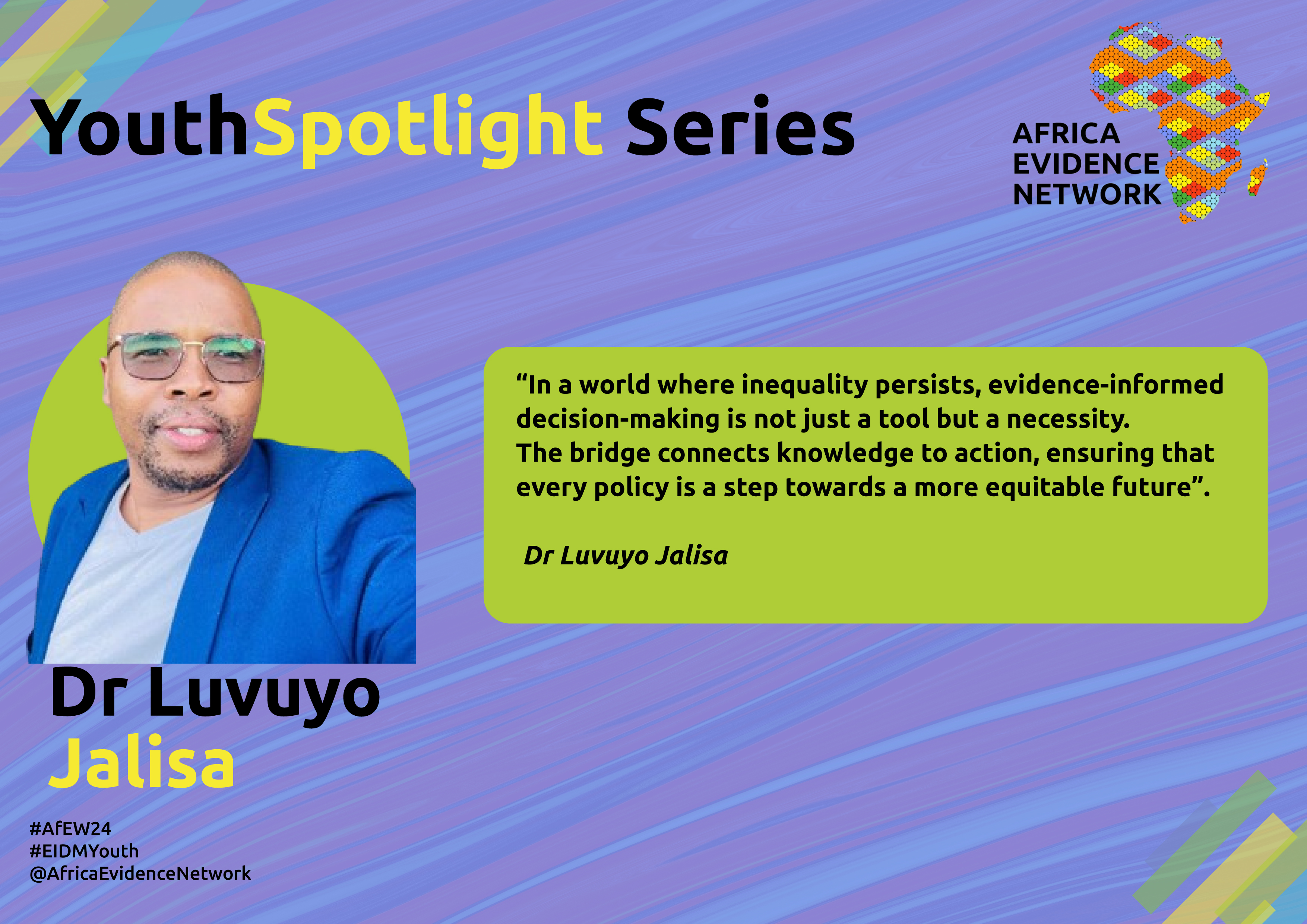
Welcome to the Youth spotlight series, where we offer first-hand insights into young leaders in the evidence-informed decision-making (EIDM) sector. You can discover their stories, achievements, and impact on our community. This is the heart and soul of the #EIDM movement.
In this conversation, the Africa Evidence Network talks to Dr Luvuyo Jalisa, a Policy Specialist at the National Department of Water and Sanitation in Pretoria.
Making a Difference with EIDM
What inspired you to get involved with EIDM?
I have always been passionate about ensuring policies and decisions are grounded in solid evidence, especially social justice and equitable resource distribution. My work in the policy space, particularly in the decentralisation of water resources management in South Africa, the provision of water and sanitation services, and the management of sanitation, highlighted the critical role that evidence-informed decision-making (EIDM) plays in addressing inequity and inequality.
Can you share a specific accomplishment you're proud of where EIDM played a key role? How did it make a positive impact?
One of my proudest accomplishments was contributing to developing the Water and Sanitation Services Policy for Privately Owned Land. We did not just rely on academic outputs; we also integrated evidence from the lived experiences of those directly affected. This comprehensive approach informed the entire policy and was approved by the South African Cabinet. Now, steps are being taken to transform the lives of previously neglected communities. Water and Sanitation services are now being rolled out on privately owned land, which was thought not to be the role of government.
Have you faced any challenges promoting EIDM within your community or area of work? How did you overcome them?
Promoting EIDM in my work often involves overcoming resistance to change, even when the data supports it. To address these challenges, I have concentrated on building strong relationships with local stakeholders and consistently engaging with communities. These ongoing dialogues help me understand their challenges and find ways to elevate their issues to a policy level.
Your Vision for the Future
What are the biggest challenges you see facing EIDM implementation in Africa right now?
One of the biggest challenges facing EIDM implementation in Africa is the lack of accessible, high-quality data, especially in rural and underrepresented areas. Additionally, there is often a gap between policymakers and researchers, making translating evidence into actionable policies difficult.
How are you working to inspire and empower other young people to get involved with EIDM?
Through workshops, seminars, and guest lectures at various universities, I actively mentor young professionals and students interested in policy development, analysis and EIDM. I encourage them to pursue research that addresses critical societal issues and always to ground their work in solid evidence. I am part of the Africa Evidence Youth League, which seeks to promote the development and uptake of evidence in every decision-making sphere.
Imagine the future of EIDM in Africa. How do you see EIDM evolving and creating a more positive impact?
I envision a future where EIDM is deeply embedded in all levels of decision-making across Africa. With advancements in technology and data science, I believe we will see more innovative ways to collect and analyse data, leading to more informed and equitable policies. This evolution will create a more inclusive and just society where decisions are made based on the best available evidence.
Sharing Your Passion (Quote)
Is there a powerful quote or statement you can share that captures your passion for EIDM and its importance?
In a world where inequality persists, evidence-informed decision-making is not just a tool but a necessity. The bridge connects knowledge to action, ensuring that every policy is a step towards a more equitable future.
About the author: Dr Luvuyo Jalisa is a Policy Specialist at the National Department of Water and Sanitation in Pretoria. He is responsible for water supply and sanitation services research to inform evidence-based policy and macro-strategy development; develop, assess, review and evaluate water and sanitation policies and macro-strategy; co-ordinate and facilitate the policy and macro-strategy development process and advocacy; monitor international and local water and sanitation services policy and macro-strategy trends; report on the implementation of water and sanitation policies and macro-strategies; develop and co-ordinate of Socio-Economic Impact Assessments reports. He has been actively involved in developing various legislations and regulations that govern water resources and water and sanitation services. You can contact him on LinkedIn and/or on Twitter.
Acknowledgements: The author(s) is solely responsible for the content of this article, including all errors or omissions; acknowledgements do not imply endorsement of the content. The author is grateful to Charity Chisoro for her guidance in preparing and finalising this article, as well as her editorial support.
Disclaimer: The views expressed in published blog posts, as well as any errors or omissions, are the sole responsibility of the author/s and do not represent the views of the Africa Evidence Network, its secretariat, advisory or reference groups, or its funders; nor does it imply endorsement by the afore-mentioned parties.
Suggested citation: Jalisa, L. (2024) Equity, Equality and Social Justice: The pinnacles of EIDM in Africa. Blog posting on 12 August 2024. Available at: https://www.africaevidencenetwork.org/en/learning-space/article/340/
